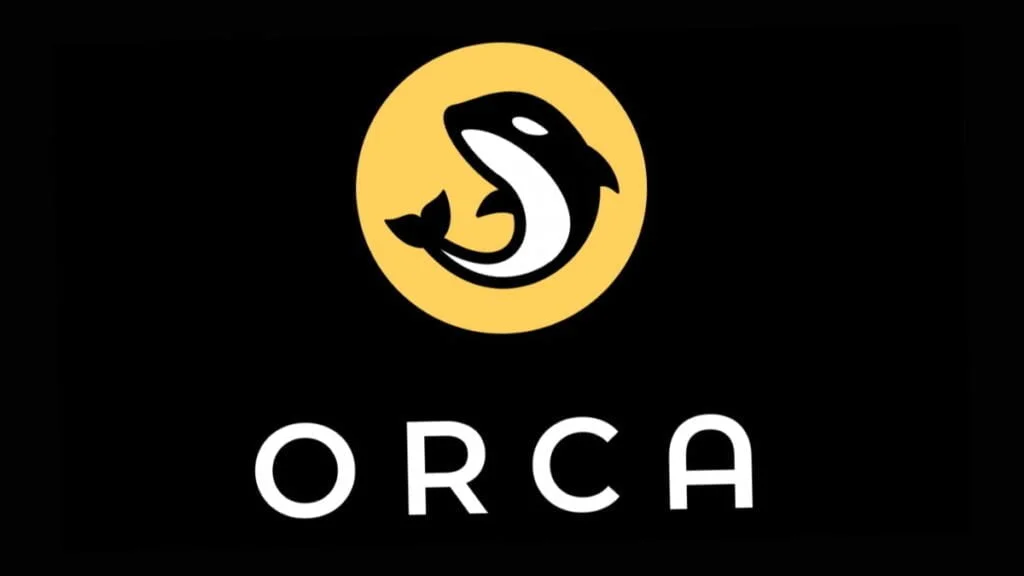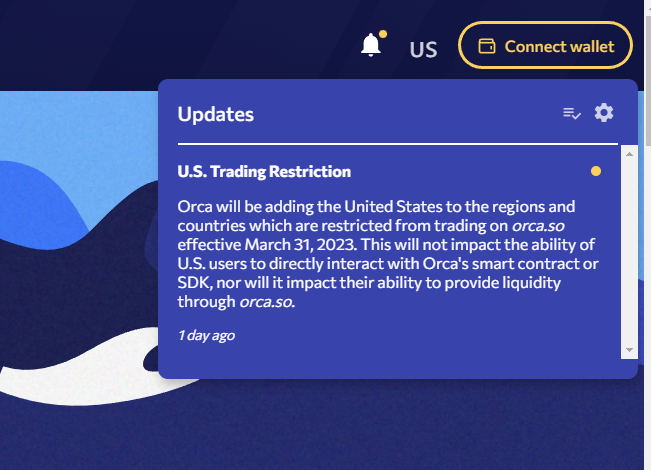According to a notice published on its official website, Orca will block all United States users from trading using its web interface beginning March 3.

According to DefiLlama, the exchange saw a trading volume of over $634 million in February and has over $46 million in total value locked in Its smart contracts.
The United States will be added to the regions and nations that are prohibited from trading on orca.so as of March 31, 2023, according to a notice posted on the protocol’s website on March 16.

The alert emphasized that the change “will not impact the ability of U.S. users to directly interact with Orca’s smart contract or SDK, nor will it impact their ability to provide liquidity through orca.so.”
The warning stated that the modification will not have an impact on Americans who directly engage with Orca smart contracts. For traders looking to interact with Orca smart contracts, Jupiter’s website may be an alternative since Orca is one of the DEXs utilized by Jupiter to provide liquidity for its swap aggregator service.
To avoid the wrath of American regulators, centralized cryptocurrency exchanges that lack U.S. licenses frequently restrict American users; the majority of decentralized exchanges, with a few notable exceptions, have not done the same.
In September 2021, Aggregator 1inch started barring American users after making it clear in its terms of use that Americans were not permitted to access its interface. In June 2019, Binance DEX also prohibited US users.
DEXs lack a centralized “back end” or developer-controlled database, in contrast to centralized exchanges. To get around geographic restrictions, several users have discovered that utilizing a VPN to mask their IP address or connecting directly to the blockchain using a development tool like Truffle or Hardhat usually works.

